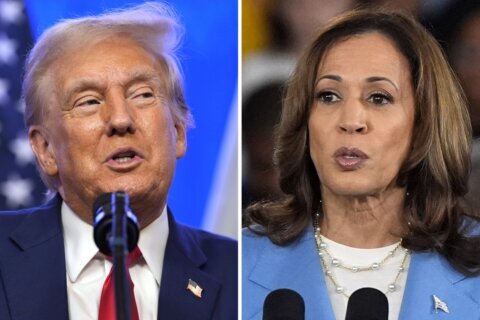You may have noticed that most major credit card issuers charge an average late fee of $32, with some going as high as $41 — but that may be changing soon. The Consumer Financial Protection Bureau announced a new rule on March 5, 2024, capping late fees at $8.
What the New Rule Means
The Credit Card Penalty Fees Final Rule by the CFPB is actually an amendment to Regulation Z, which implements the Truth in Lending Act, to address late fees charged by card issuers. The CFPB rule is specifically targeted to the nation’s largest credit card issuers, defined as those with more than 1 million open accounts. These companies account for more than 95% of total outstanding credit card balances.
The text of the rule states, “This final rule adopts a late fee safe harbor threshold of $8 for those issuers and provides that the annual adjustments to reflect changes in the Consumer Price Index (CPI) do not apply to this $8 amount.”
For consumers, there are two main things to know:
— The CFPB is mandating that late fees be capped at $8.
— The rule eliminates credit card issuers’ ability to automatically raise the fee annually to adjust for inflation. Instead, the CFPB will determine if and when adjustments to the $8 late fee are needed.
Some Early Pushback on the Rule
Immediately following the final rule announcement, some industry leaders and government officials have expressed their opposition, indicating possible legal and political challenges to the CFPB’s rule. Later on Tuesday, the U.S. Chamber of Commerce announced it would sue the CFPB over the new rule, the American Banker reported.
“The Bureau’s misguided decision to cap credit card late fees at a level far below banks’ actual costs will force card issuers to reduce credit lines, tighten standards for new accounts and raise APRs for all consumers — even those who pay on time,” said Rob Nichols, president and CEO of the American Bankers Association, in an issued statement. “We will closely review this final rule and consider all options to fight the harmful consumer policy coming out of Director (Rohit) Chopra’s CFPB. This rule should not be allowed to go into effect.”
On the political front, Sen. Tim Scott, R-S.C., Ranking Member of the Senate Banking Committee said in a statement, “Lawful and contractually agreed upon payment incentives promote financial discipline and responsibility … To continue delivering for those who need it most, I will be using the Congressional Review Act process to fight the implementation of this rule.”
How Did Late Fees Get So High in the First Place?
As part of the 2010 CARD Act, banks were limited to charging late fees needed to recover their costs. But there was also a provision that allowed them to charge higher amounts for multiple late payments, which is why many cards charged less for a first offense — such as $25 for the first late payment and $35 for the second. And, because credit issuers were also allowed to make adjustments to their late fees for inflation, late fees have risen as high as $41.
As part of its overall investigation into the credit card market, the CFPB concluded that major credit issuers have been charging fees in excess of their recovery costs. According to its calculations, the CFPB determined that $8 would be enough to satisfy card issuers’ costs.
“The CFPB showed its math when it established an $8 safe harbor for credit card late fees,” said Lauren Saunders, associate director of the National Consumer Law Center in a press release. “That’s how good, data-driven regulation is done.”
In order to charge above that threshold, credit card companies would need to demonstrate their costs in dealing with late payments and prove that a higher fee is warranted.
What’s Next?
The effective date of the final rule will be 60 days after publication of the rule in the Federal Register. “It could take a few weeks for the proposal to show in the Federal Register; they’ve been a bit backed up in some cases,” says Chi Chi Wu, senior attorney at the National Consumer Law Center. “So a ballpark guess would be that the rule will take effect in two and half to three months, barring a court challenge.”
As for whether there will be a court challenge, Wu says it’s possible. However, she notes the CFPB has strong legal authority to set this $8 late fee amount since the Credit CARD Act of 2009 specifically allows it to set the “safe harbor” amount for credit card late fees.
Late Payments Still Have Consequences
While consumers wait to see how this new rule plays out, it’s important to note that missing payments will still have plenty of negative consequences and should be avoided. For instance, the new rule does not prevent card issuer’s from increasing the interest rate for future purchases, cutting the credit line, or taking away the grace period if someone pays late.
Of course, the biggest impact that late payments can have is on one’s credit score. Once a cardholder misses a full billing cycle (30 days or more), that lateness is reported to the credit bureaus. And since payment history is the biggest factor impacting credit scores, paying late will cause scores to drop.
Be sure to put practices in place that help you avoid late payments, such as signing up for text and email reminders or setting up autopay. Making each monthly payment on time will let you avoid late fees — whatever that cost may be.
More from U.S. News
How to Avoid Credit Card Interest
How to Calculate Credit Card Interest
CFPB Sets New Rule to Cap Credit Card Late Fees at $8 originally appeared on usnews.com







